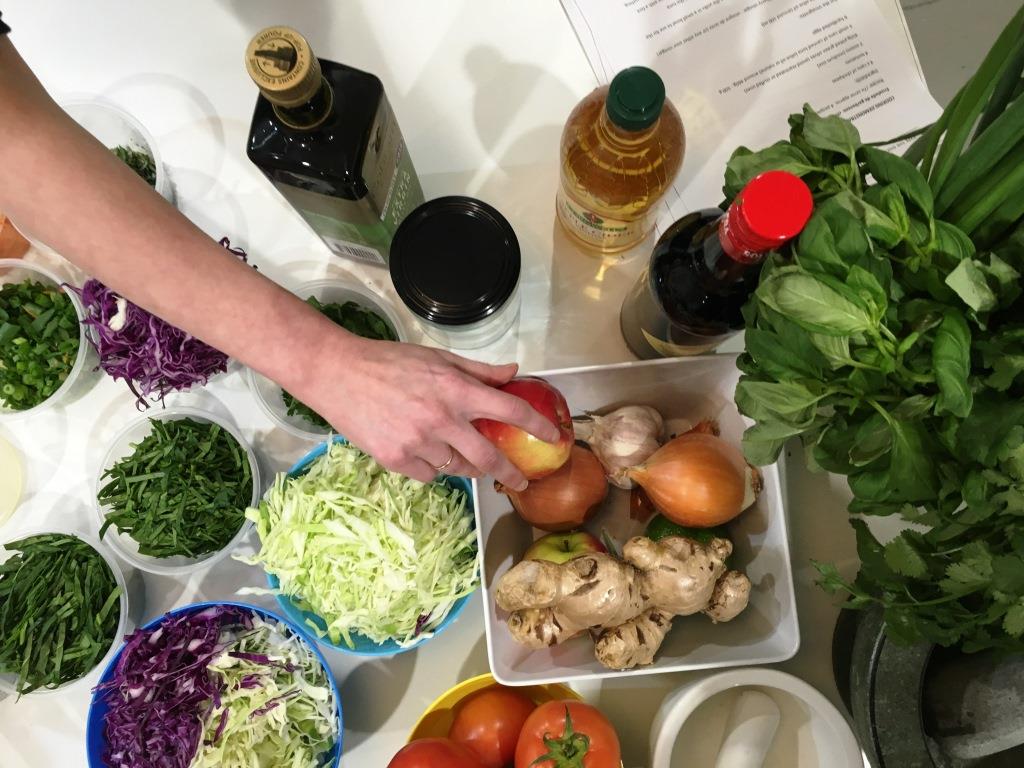
Here are some tips for eating and drinking to maximise health and wellbeing during the holiday season and into the new year.
Portion distortion
Many of us admit to over-indulging in food and drink on Christmas Day, but many may not realise just how much they’re actually putting in their mouths. A recent UK survey has revealed the average person in Britain is consuming as much as 24,000kJ on Christmas Day. This is roughly three times as much we would usually consume in a single day.
Australians are probably not far off of this mark with a steady stream of champagne, prawn cocktails, candied nuts and chocolate – on top of an indulgent breakfast. This can mean that before even sitting down to Christmas lunch we’ve already consumed more than what we normally would on a typical day.
Mindful eating and recognising signs that you’re full can help with avoiding over-indulgence on the day and avoiding the temptation of second helpings.
Rethink your alcoholic drink
A previous survey by Australian charity FebFast, which surveyed 1000 adults on drinking habits, reported that from among responders the frequency of alcohol consumption tripled over the festive season in December and January.
Research published earlier in the year reported that among Australians who consume alcohol, the kilojoules from booze contributes to 13-14 per cent of their daily energy intake.
For good health, keep alcohol intake to a minimum. You should limit alcohol to two standard drinks or less per day with two alcohol-free days per week.
If you are having a tipple over the holidays, try alternating your drinks with a non-alcoholic choice like soda and lime to easily cut down the quantity of alcohol and kilojoules consumed.
Walk it off
Avoiding sitting is also another simple tip for keeping healthy and to counter-balance the excess food and drink consumed over the holidays.
A brisk walk after meals or in the evening when it’s cooler is an easy way to increase your physical activity.
Getting into the habit of doing this every day will set up a positive routine for the new year and beyond.
Plan your menu around plant foods
Cutting out junk foods and eating more vegetables and fruits is the single most important thing we need to do to improve our nation’s health.
Plus, incorporating more vegetarian dishes into your diet is not only good for your health but also good for the environment.
Why not use the holiday season to start putting this into practice?
Our hot weather is well suited to serving up quick and easy dishes based on fresh seasonal vegetables and fruits. Not only is it easy and cheaper, but using seasonal foods you ensure what you serve up over the holidays is fresh and delicious.
Plenty of simple, delicious and colourful vegetarian recipes are available online.
Simple dishes on their own, or as a side, include roasted mixed vegetables or salad of green salad leaves, chopped almonds and fresh nectarines.
Herbs, spices and nuts are easy additions to take simple vegetable dishes to the next level.
Look for and use fruits and vegetables that are in season over the summer, including cherries, mangoes, plums, nectarines, peaches, apricots, melons, Asian greens, beans, beetroot, carrots, corn, lettuce and rocket.
Variety is the spice of life
In a rich multicultural nation with such a wide variety of food and drink, the holiday season is an ideal time to showcase and celebrate this culinary diversity.
Shake up your festive season menu by seeking inspiration from the global village to whip up a culturally diverse menu that will be sure to impress family and friends.
Think soba noodle salads, fresh fajitas filled with lean meats, beans and fresh salsa, fresh tropical fruit salads. Sure beats the usual offerings of leftover turkey, ham and gravy!
Flinders University associate lecturer Dr Kacie Dickinson is an accredited practising dietitian.

